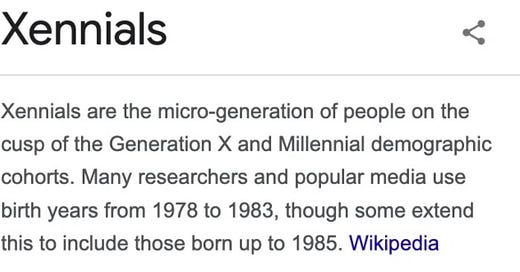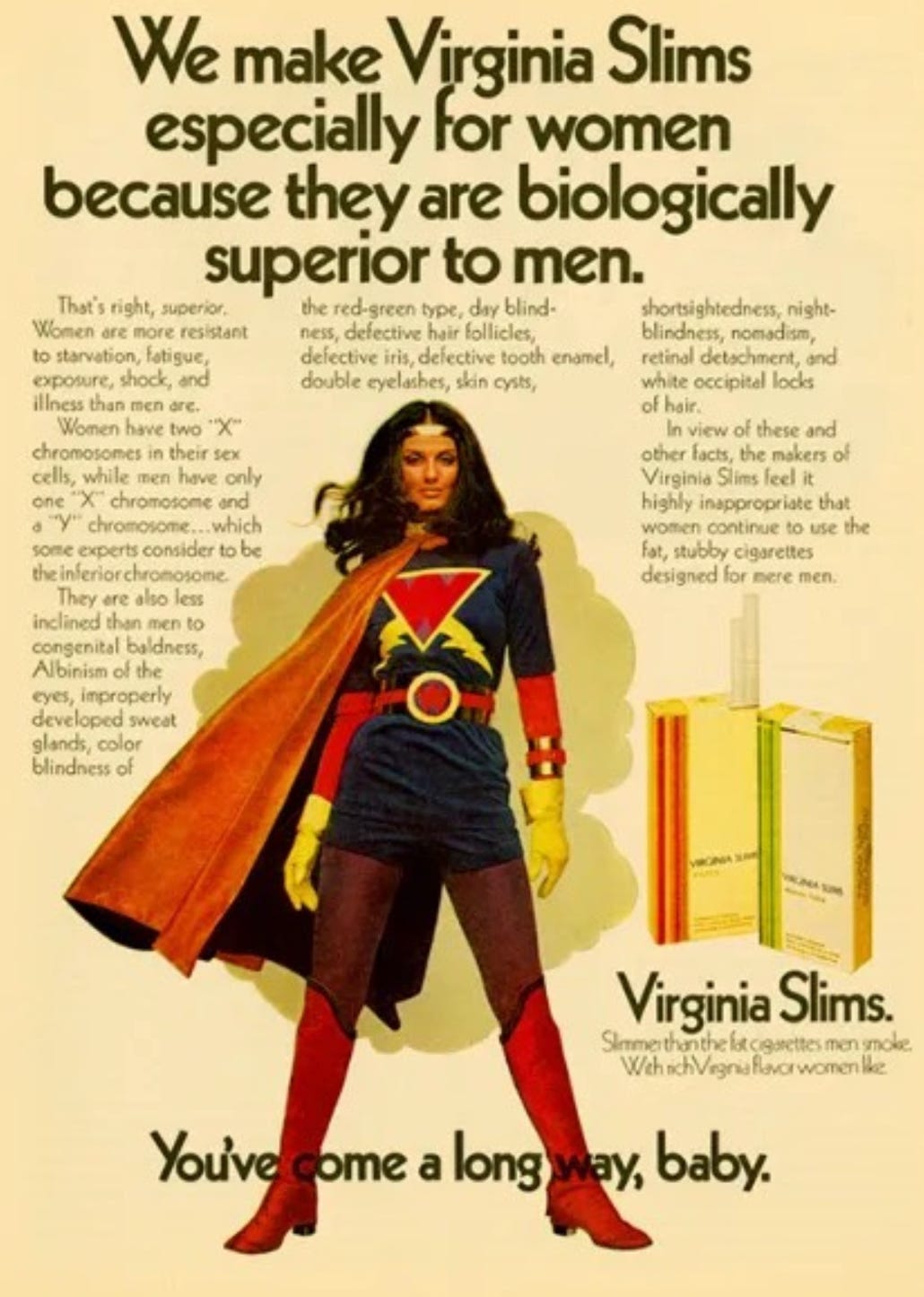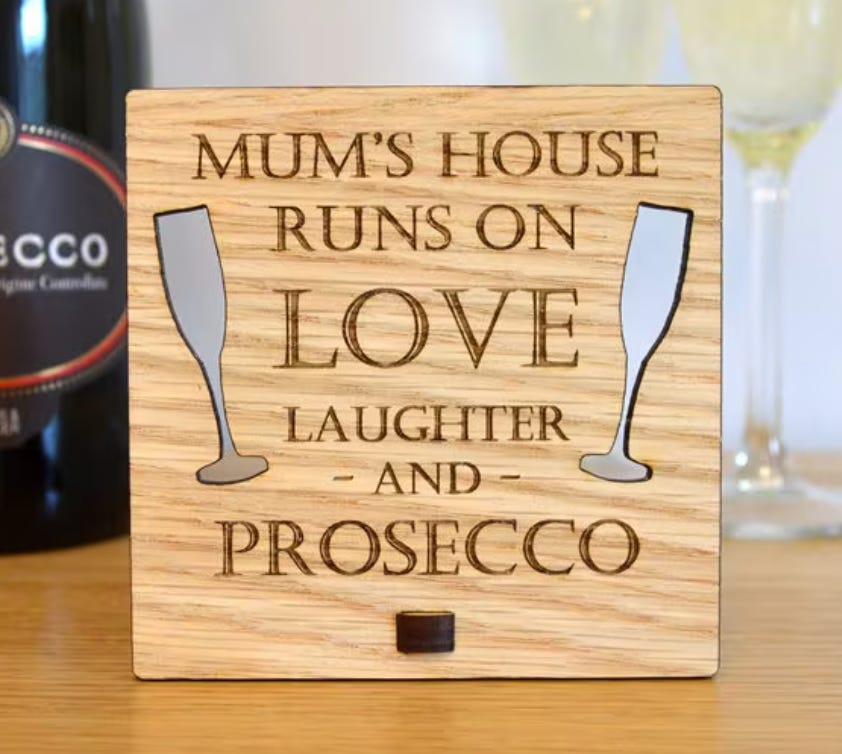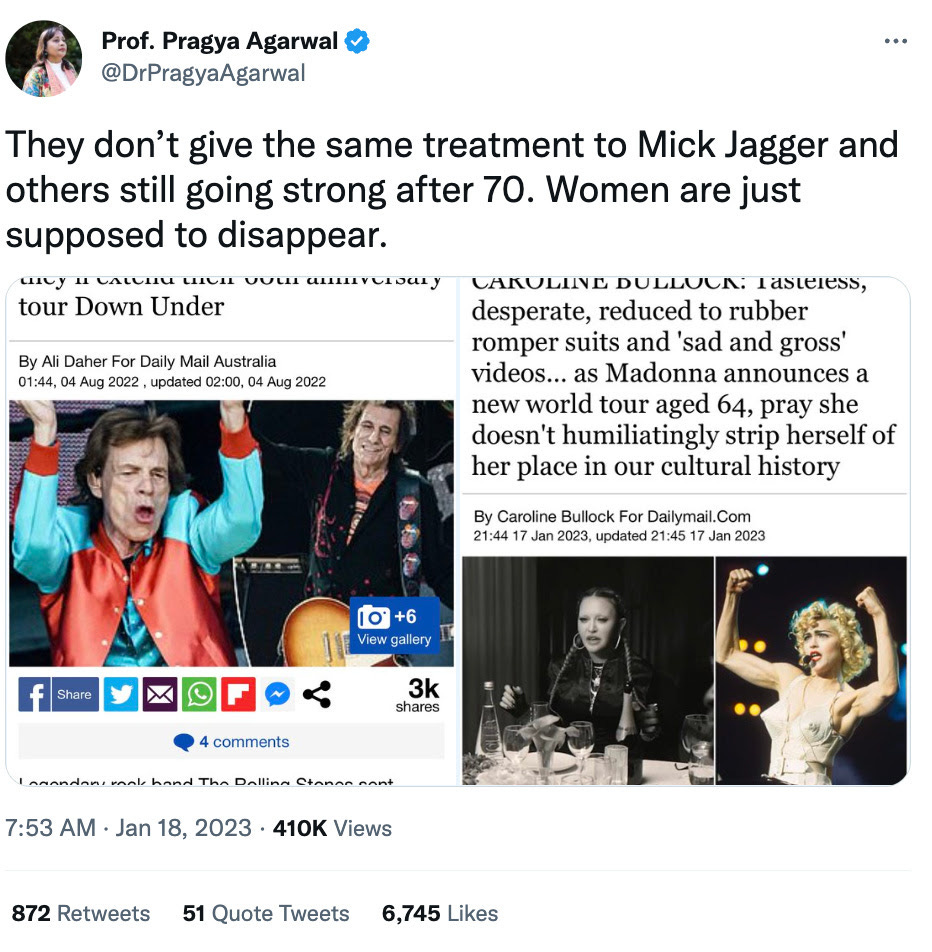The Undisputed Frustrations and Power of Prosecco Mum
Politicians would do well to listen and respond to the concerns of this crucial group
Dear Readers,
For those new subscribers, I’m Dr Eliza Filby, a historian of generations who explores how society is changing through the prism of age, tackling how each generation are evolving as consumers, workers and citizens.
In this newsletter you will find articles written by me as well as insights, links and news on generational shifts in the workplace, consumption and society at large. Helping you feel out of touch and up-to-date in equal measure….
In this week’s edition:
The undisputed frustration and power of Prosecco Mum
How the Finnish are preparing Gen Alpha for the info-crisis age
What impact does birth-rate have on the economy?
The Rise and Pop of the Prosecco Mum
Much has been made of Rishi Sunk being our first Xennial Prime Minister (born between 1975 and 1983) - despite the irony that it will probably be Xennials, crumbling under spiralling mortgage rates and childcare costs, who will kick him out in 18 months’ time. For as much as our politicians represent a generational change of gear, as we know, it’s the voters that exemplify the real tide of change.
Pollsters and political strategists love to fixate on sub-categories of swing voters that represent enough of a cultural shift and embody certain values which, if adequately appealed to, can push the electoral result definitively either way.
Back in the eighties there was the Essex Man, the aspirational and increasingly affluent working classes to whom Thatcherite policies of sound money, low taxation and home ownership appealed. In the nineties, Tony Blair set out to win the affections of what became known as ‘Mondeo Man’; precisely those who had switched to the Tories under Thatcher and needed convincing to vote for New Labour. More recently, ‘Workington Man’ was coined to describe working class, non-graduate, pro-Brexit males and ultimately, Conservative voters who guaranteed those critical Red-Wall (traditional Labour) seats in 2019.
Historically, this has been a male-centric exercise but floating female voters have been loosely drawn, too. In the 1990s, ‘Worcester woman’ was used to describe a mid-life woman in the Midlands whose reportedly consumerist values and a vague understanding of politics meant they were particularly susceptible to New Labour spin. For the critical 2010 election, Tory pollsters identified ‘Holby City’ woman as someone who worked in the public sector but whose loose attachment to Labour and belief in tight fiscal discipline at home and in government, translated in a swing to the Tories.
These caricatures of floating voters are certainly crude and often pejorative, and may have only served as convenient short-hand for the Westminster commentariat, and yet nonetheless they do have the capacity to reveal fundamental truths about how society (and yes, politics) is evolving.
In 2023 another important sub-group is emerging, one that symbolises the latest societal shift. A figure that is instantly recognisable in our workplaces, homes and on our feeds, and whom politicians ignore at their peril: Prosecco Mums.
But who is Prosecco mum? In short, they are more hunsnet than mumsnet. You would be right in thinking they are Xennial mothers who favour a certain Italian sparkling wine. One in-depth analysis of the Prosecco consumer from 2018 identified that 41% were graduates, 81% lived with their partner or children and the majority, 52%, lived in the South of England. But that only tells half the story, for it is in the history of this favoured tipple that the legitimate political frustrations of these women are revealed.
The UK is the largest market in the world for Prosecco, importing a staggering 131 million bottles a year, which collectively makes up a third of the world’s consumption. But it was not always so. Crucially, the rise of Prosecco coincided with the 2008 Financial Crisis where it was marketed as a cheap but perfectly acceptable alternative to champagne. It was ‘bougee on a budget’ and one that specifically appealed to the Xennial demographic who entered adulthood just as the world entered the deepest recession since the Second World War.
Xennial women had spent their youth downing Smirnoff Ice and Bacardi Breezers and thus were the first generation of women for whom alcohol consumption was socially encouraged, and they were as vigorously marketed to as young men. The ladette binge drinking culture (think Zoe Ball and Sarah Cox before they settled into Radio 2) dominated our education years followed by the aspirational Cosmopolitan Sex and the City glamour that propelled our early working lives. Xennials coming of age symbolised an increasing equalisation of the sexes, a delaying of the traditional responsibilities of adulthood and greater female financial independence. The drinks companies merely sought to capitalise.
In the words of Professor Carol Emslie there was a ‘move away from sexualising women to sell alcohol, to men towards alcohol brands trying to align their products with sophistication, women’s empowerment and with female friendship’. A point which she believes ‘is really straight out of the tobacco industry playbook’ - a reference to when cigarette companies started aligning with the women’s lib movement in the 1960s to attract a new breed of liberated female smokers.
This ‘pinking’ of the alcohol market for Xennial women reached new heights as they themselves reached the next stage in life: motherhood. And so the social phenomenon of Prosecco Mum was born. One where ‘wine o’clock’ was promoted as ‘Mummy’s Time Out’ from the exhaustive and relentless pressures of parenthood complete with italic fonts and cheeky mum memes. As Canadian writer Ann Dowsett Johnston, author of Drink: The Intimate Relationship between Women and Alcohol has surmised: ‘wine has become the code for ‘I deserve it, parenting is hard, I need to decompress’
.That Prosecco became about self-care and an alleviation from the stresses of motherhood was no great leap from how spirits and beer had been historically marketed to men; as a source of relaxation and reward at the end of the working day. Except of course, these women were both working and mothering and living in a 21st century digital world where the ability to switch off became almost impossible.
For Prosecco mums it has also come to symbolise something more profound; not just an escape from the daily grind but a crucial and soothing reminder of life before motherhood. The power of connecting with our younger selves. The immediate reawakening of individual freedom that comes from pouring something for yourself as you break from serving someone else. As Lisa Jacobson, an associate history professor at the University of California, Santa Barbara has stated: “It allows women to embrace their identity as mothers, while also refusing to be solely defined by that role.” This is critical for the generation who had children much later than their mothers and had literally decades of forming their identity before they had children (and yes, with much of that sense of self forged around alcohol).
But as much as the Prosecco mum delights in nostalgia for her youth, her very real and legitimate frustrations cannot be ignored. The pandemic awoken her sense of injustice as she morphed into a teacher and found herself fighting for the time and space to work. The bitterness of that experience has lingered and only intensified in the cost of living crisis and spiralling mortgage costs. Her anger tends to resurface at the end of each month as she sees most of her wages go on childcare. She is exhausted by a flexible working model that on the surface appears more malleable to mothering but in reality stretches her to breaking point. Not to mention the constant guilt she feels parenting in a culture that requires you to be constantly connected, stimulating and present with your child - and to post it regularly. And too, the sense of dread she feels when she remembers that caring for her children will soon be replaced with caring for her ageing parents in a society where there is little state provision. Prosecco Mum may not be overtly political but she is becoming more and more politicised.
Is it any wonder then that Prosecco Mums have become more left-wing later in life? Rather than becoming more conservative with age, they are increasingly siding with the Labour party and in doing so represent a significant break with female voting patterns of the last 100 years. It used to be that the majority of women voted Conservative with more men tending to vote Labour - even though the gender gap was relatively small. Up until 2010 there was no major discernible difference in how men and women voted but from 2015 onwards the gender gap in voting patterns started widening, particularly in women under 45 tending to side with Labour. 37% of women voted for Jeremy Corbyn in the last election compared with just 29% men. That the Tories have a women’s problem is undeniable, but nor can Labour confidently claim that they have the Prosecco mum vote in the bag, (especially with an electoral pitting of feminists Vs trans-rights making things even harder for the party).
The demographic that grew up with girl power are increasingly feeling powerless - not in respect to their stature, status or life choices - these have never been more validated - rather in the practical economic and social burdens of working motherhood. The double-life may have become more socially acceptable since our mothers’ day but it is arguably comes with higher expectations, financial necessities and greater complications. Prosecco Mums may be increasingly independent but are also increasingly worried and therefore increasingly politically important. So if Tony Blair could embody the hopes and dreams of Mondeo Man back in the mid-nineties, who today represents Prosecco Mum? As images go, neither teetotal Dishy Rishi nor Special K Starmer really chime. The recent picture of Angela Raynor in the DJ booth at a gig in Manchester cracking out N-Trance's 'Set You Free' on the other hand? Classic Prosecco Mum vibes.
People to Follow
Do check out Professor Matthew Goodwin’s Substack covering UK politics from a different perspective from Brexit regrets to cancel culture.
Stuff I’ve Read
An Education in Fakery. Finland already has a world-renowned education system and they are continuing to reflect and remodel it for the 21st century with the recent introduction of internet culture classes. Students are taught how to spot fake news, learn how algorithms work and are even tasked with editing their own videos and photos to see how deep fake and airbrushing is done. With Baby Boomers more likely to spread information on-line than any other generation, maybe these are classes that all generations could benefit from.
Rise of the Grey-Gig Economy. Data from the ONS has revealed a 99 per cent rise in over-50s working on zero-hours contracts between 2013 and 2022. More than a quarter (28 per cent) of all zero-hours contracts are now held by workers 50 and older. Expect this trend to continue as Gen X, who aren’t as rich as Baby Boomers, will need to work harder and for longer. We tend to assume that the gig economy is dominated by the young even though the flexibility it offers may increasingly entice older workers. Also forget the Great Resignation, 16% of Britons are reportedly looking for a second job this year.
China’s population has started shrinking - so is demographics really destiny? This article on population and its impact on economic prospects is worth a read.
Feast for the Senses
Listening: to the Today programme every morning. I’ve gone retro and now wake up to a Roberts radio rather than my phone alarm. Yes, a New Years’ Resolution and all part of detoxifying myself from tech-overload. My life is one big geriatric millennial cliche which is why I read…..
Reading: Escape: How a generation shaped, destroyed and survived the internet by Marie Le Conte (who incidentally will be coming on my podcast soon to talk about millennials’ relationship with the internet.
Watching: The Bernie Madoff docu-series on Netflix - 2008 is now starting to feel like history even though the real story here is not how the Crash stopped Madoff but how the regulatory authorities let him get away with it for DECADES.
Visiting: To the Quilter studios in East London to film my latest lecture on how the pandemic and the cost of living crisis is impacting family finances.
and FINALLY… this prescient tweet on Madonna’s recently announced comeback tour. Ageism impacts the genders differently.
Thanks for reading,
Eliza








